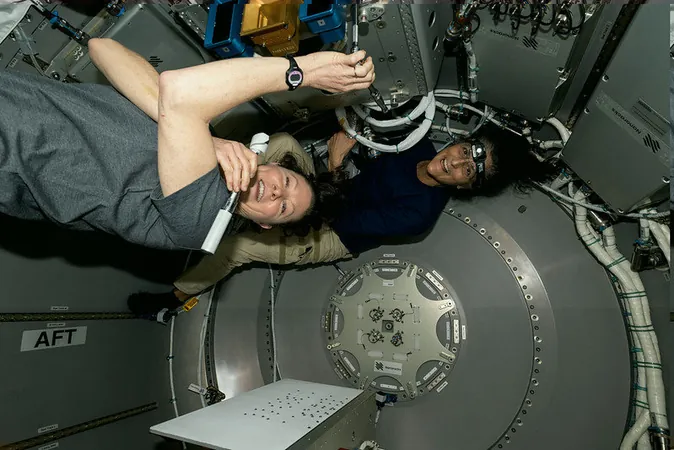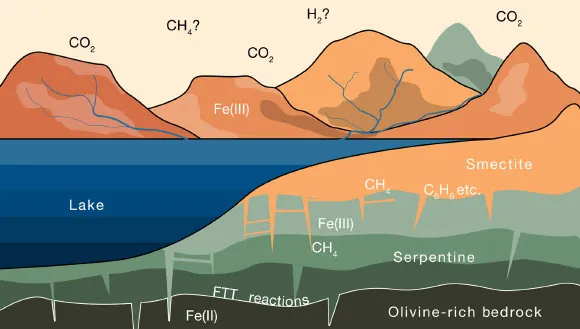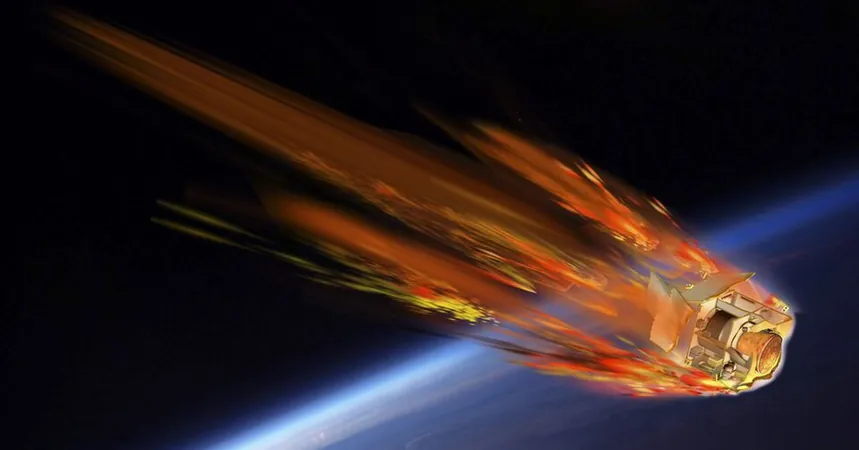
Unlocking Cosmic Insights: New Earth Observation Technology to Revolutionize Climate Monitoring!
2024-09-26
Introduction
In an exciting leap forward for environmental science, the International Space Station (ISS) is set to enhance its monitoring capabilities dramatically. Thanks to a groundbreaking payload funded by the ISS National Laboratory and developed by Airbus US Space and Defense, researchers will gain improved access to the ISS’s unparalleled perspective of Earth.
Enhancing Observational Abilities
Debra Facktor, head of US Space Systems at Airbus US, stated, "Airbus is enhancing our observational abilities and democratizing space access. Our ArgUS platform on Bartolomeo will accommodate smaller payloads while providing the power and data handling of larger initiatives." This innovative Bartolomeo platform not only offers operational support and data transfer but boasts an unobstructed view of our planet from the European Columbus Module, enabling synergistic missions across various fields, including Earth observation, robotics, materials science, and astrophysics.
Introducing ArgUS Multi-Payload Adapter
The newly introduced ArgUS Multi-Payload Adapter allows for the integration of small experiments into standard Bartolomeo slots, marking a major milestone in space research. Facktor described ArgUS as a "cosmic co-working space," evoking the image of various projects working collaboratively to garner insights about our environment.
First Payloads and Innovations
Kicking off this momentous venture, the first payloads utilizing ArgUS are scheduled to be deployed shortly. Among them is SpaceTV-1, a cutting-edge 4K camera system promising real-time video streams of Earth and the ISS, available through the Sen app for everyone. "We aim to provide crucial insights into environmental events, inspiring action through our imagery," said Charles Black, CEO of Sen.
BAE Systems and Earth Observation Technologies
Furthering this mission, BAE Systems will test new Earth observation technologies on ArgUS. With highly advanced hardware such as a next-gen radio frequency receiver and a short-wavelength infrared camera, the project aims to generate invaluable data related to climate change and natural disasters, possibly even aiding future lunar expeditions.
Significance of the ArgUS Project
Steve Smith of BAE Systems emphasized the importance of this initiative, saying, "By enhancing our Earth observation and data processing capabilities at low costs, we’re paving the way for significant advancements in environmental monitoring." The ArgUS project represents a significant reduction in the barrier to entry for research institutions and private organizations eager to access low Earth orbit for scientific purposes.
Future Prospects
With a high-speed data downlink rate, researchers can quickly analyze and disseminate critical data, amplifying the impact of their studies. Launched aboard SpaceX’s landmark 30th Commercial Resupply Services mission, ArgUS carries over 40 payloads sponsored by the ISS National Lab. This revolutionary step in space-based research promises to reshape the future of climate science and disaster response.
Conclusion
Stay tuned as we continue to report on how these technological advancements could inspire global action towards preserving our precious planet!




 Brasil (PT)
Brasil (PT)
 Canada (EN)
Canada (EN)
 Chile (ES)
Chile (ES)
 España (ES)
España (ES)
 France (FR)
France (FR)
 Hong Kong (EN)
Hong Kong (EN)
 Italia (IT)
Italia (IT)
 日本 (JA)
日本 (JA)
 Magyarország (HU)
Magyarország (HU)
 Norge (NO)
Norge (NO)
 Polska (PL)
Polska (PL)
 Schweiz (DE)
Schweiz (DE)
 Singapore (EN)
Singapore (EN)
 Sverige (SV)
Sverige (SV)
 Suomi (FI)
Suomi (FI)
 Türkiye (TR)
Türkiye (TR)